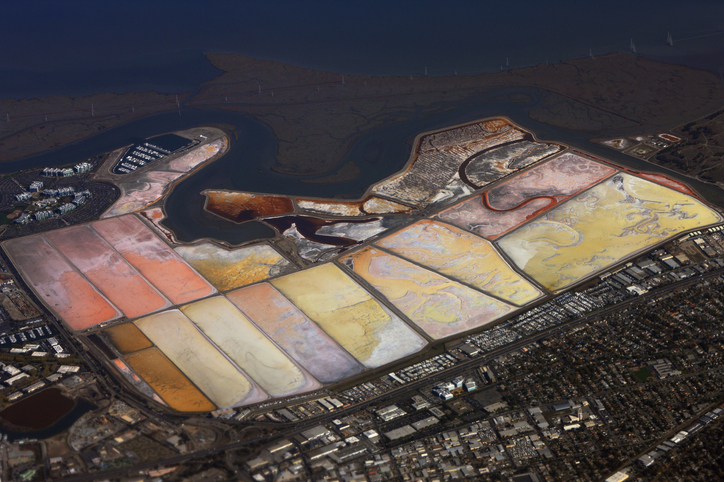Cargill this week withdrew its appeal of a federal ruling that reinstated U.S. Clean Water Act (CWA) protections for the Redwood City Salt Ponds, marking the latest legal victory for environmental groups that have long battled against development of the 1,365-acre site.
CWA protections do not preclude the possibility of development of the salt ponds, but add significant regulatory hurdles to proposed projects. For years, Cargill has expressed interest in developing the site, including a 2012 proposal to build up to 12,000 housing units that was later withdrawn amid public opposition.
In March 2019, an important obstacle to development was removed when the U.S. Environmental Protection Agency (EPA) during President Trump’s administration decided the salt ponds were not subject to CWA protections. At the time, the EPA found that the ponds had been converted to fast land before the CWA’s passage in 1972 and thus no longer qualified as “waters of the United States.”
Local environmental groups challenged the EPA’s decision in court, and in October last year U.S. District Court Judge William Alsup ruled in their favor, finding, in part, that the salt ponds “remain subject to CWA jurisdiction because they are wet” and “have important interconnections to the Bay.”
Both the EPA and Cargill appealed Judge Alsup’s decision in the final days of the Trump Administration. The EPA, however, withdrew its appeal in February, after President Biden took office. Cargill followed suit this week.
“Given the U.S. Environmental Protection Agency’s withdrawal of the appeal to the Ninth Circuit Court of Appeals, we are also withdrawing our appeal,” David Smith, a spokesperson for Cargill, said in a statement. “Our focus remains protecting environmental resources and working with our neighbors in the Bay Area to consider future uses of the Saltworks site. In the interim, salt harvesting operations at the site will continue.”
David Lewis, executive director of Save the Bay, hopes Cargill will transfer the site to the San Francisco Bay National Wildlife Refuge, “so the salt ponds can be restored to healthy tidal marsh.”
Sejal Choksi-Chugh, executive director of San Francisco Baykeeper, vowed to “continue to watchdog Cargill, as well as Biden’s EPA, to make sure the ponds are afforded Clean Water Act protections.”
“And we’ll keep advocating for the ponds to be restored to functioning tidal wetlands, creating habitat for hundreds of species of plants and animals, and providing a natural buffer that will help protect Bay Area shorelines and communities from climate-driven flooding,” Choksi-Chugh said.






